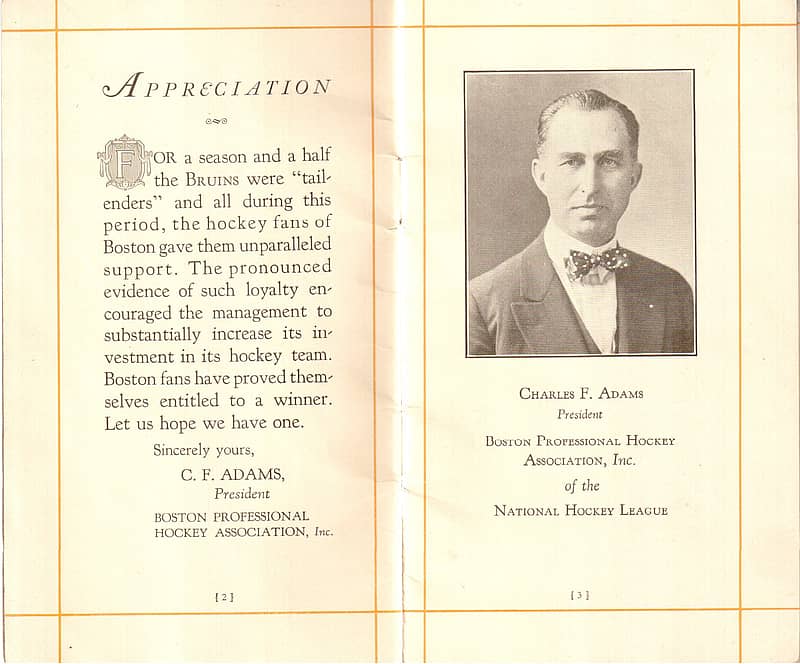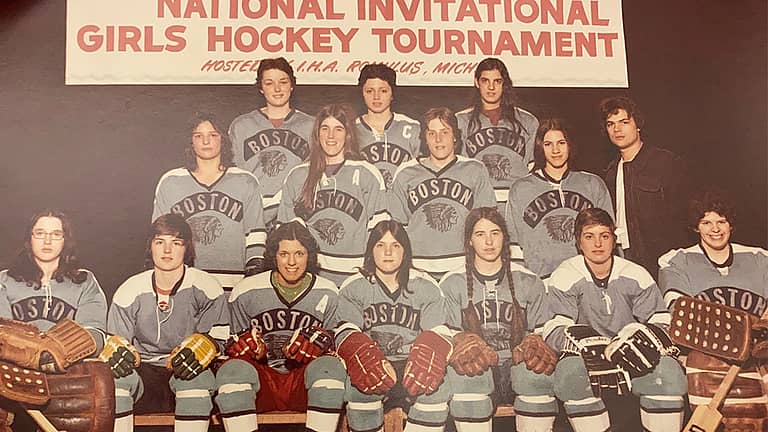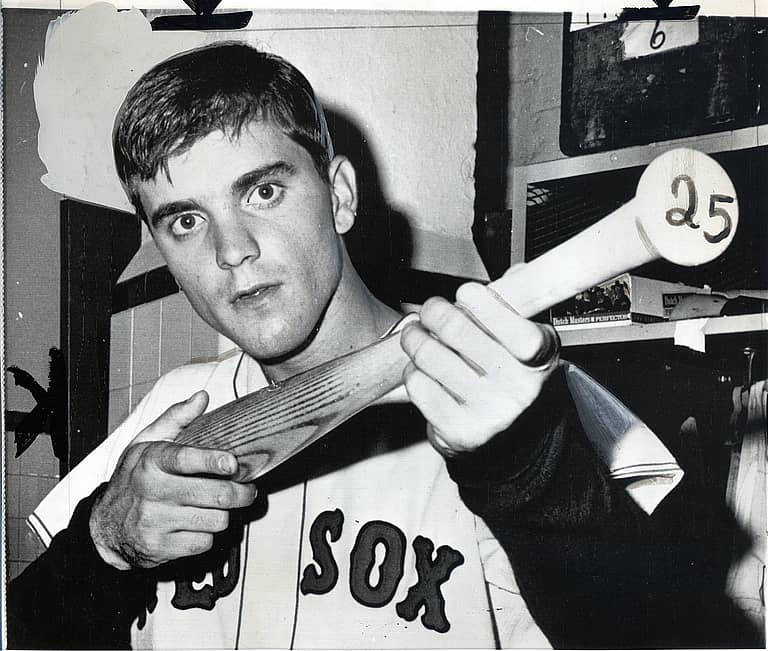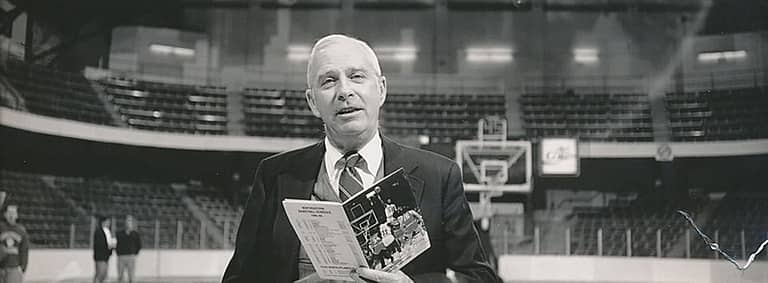“The Bruins are an untamed animal whose name is synonymous with size, strength, agility, ferocity, and cunning.” -Bruins founder Charles F. Adams
There’s no doubt that Boston Bruins founder Charles Francis Adams shared certain core traits with the best of Boston’s professional franchise owners. Like Robert Kraft, he was a devoted fan of his sport long before any interest in purchasing a team. Like John Henry, he was a self-made magnate and like any of his many championship pedigree compatriots, he attracted the best executives and coaches in the business and simply left them to their own devices.
In the case of Adams his hiring of Art Ross in 1924, which included putting him in as a limited partner, resulted in the Bruins winning their first Stanley Cup in only their fifth season.
Born in poverty in Newport Vermont in 1876, Charles Francis Adams was a true-life Horatio Alger story working his way up from grocery clerk to achieving success as a lumber broker and eventually parlaying his retail experience to service as treasurer of The New England Maple Syrup Company in Cambridge, MA.
Following a move to an executive position in banking, he returned to the retail food business where he later became chairman and principal owner of the First National Stores Finast grocery chain.
Though not a member of the world-famous Boston political dynasty Charles gave his own burnish to the Adams name in Boston via sports and several significant achievements.
His first and most lasting legacy was founding the Boston Bruins in the fall of 1924. Strangely enough, the team came about in the wake of a scandal involving the Pittsburgh Yellow Jackets and Boston AA of the United States Amateur Hockey Association in which the Pittsburgh team threw a playoff game against Boston to secure an additional home game at Duquesne Gardens.
The resulting controversy opened the door for a group, initially led by Montreal horseracing executive Thomas Duggan, to finally place an NHL team in the United States. When New York City backed out of their deal Boston, led by Adams completed negotiations for a deal that not only placed a team in Boston but also allowed Duggan to start a team in Montreal, the Maroons, to compete with the Canadiens.
Boston Arena, long a home to a host of school, collegiate, and top-flight amateur competition was more than happy to reserve Monday nights for the home games of America’s first NHL franchise.
According to legend, Adams held a contest to name his team and General Manager Art Ross’s secretary, Bessie Moss, came up with the Bruins’ name.
The Boston Globe reported as follows, “An interesting item is connected with Pres. Adams’ partiality towards brown as the team color. The pro magnate’s four thoroughbreds are brown, his fifty stores are brown, his Guernsey cows are of the same color, brown in the predominating color among his Durco pigs on his Framingham estate, and the Rhode Island hens are brown, although Pres. Adams wouldn’t say whether or not the eggs they lay are of a brown color.”
After suffering through two dismal seasons Adams secured an influx of talent through his purchase of the Western Canada Hockey League from the Patrick brothers in 1926 for $300,000. Included in the purchase were such future Hall of Fame players as Duke Keats, Harry Oliver, Frank Boucher, and Eddie Shore. Soon after, he invested $500,000. In the construction of the Boston Garden.
Within three years Eddie Shore led his team to their first Stanley Cup in 1929 and sold out arenas through North America.
Adams also founded a minor league hockey team, the Cubs, which shared space in the Garden and charged fan-friendly prices in the depths of the Depression with a top ticket price of one dollar.
Not satisfied with just being the owner of one Boston franchise Adams bought a minority share in the Braves National League baseball team in 1927 and remained a board member until 1935 when his ownership stake in the newly opened Suffolk Downs forced Baseball Commissioner Kenesaw Mountain Landis to request his sale of his shares.
As head of the Eastern Racing Association, he led the effort to build Suffolk Downs, a facility that routinely attracted more paying customers than the Red Sox and Braves combined.
Elected to the Hockey Hall of Fame in 1960, a division in the NHL’s Prince of Wales Conference from 1974 to 1993 was named in his honor before it became known first as the Northeast Division and currently the Atlantic Division.
Adams occupies a singular place in Boston sports as having been the owner and partner of two local pro franchises simultaneously while also building one of America’s legendary thoroughbred tracks.
